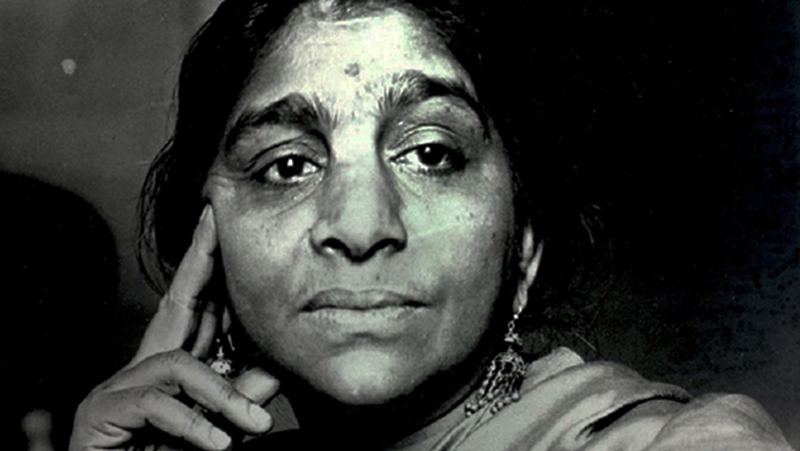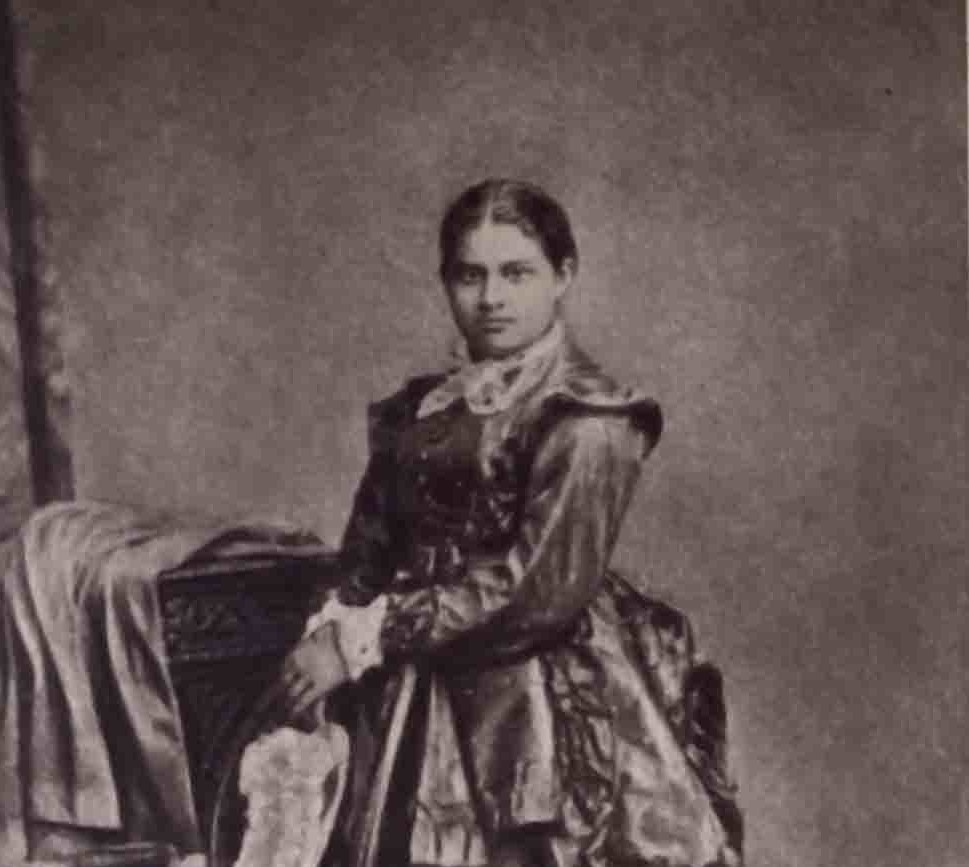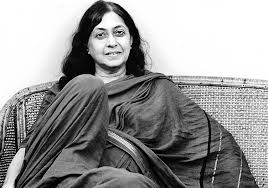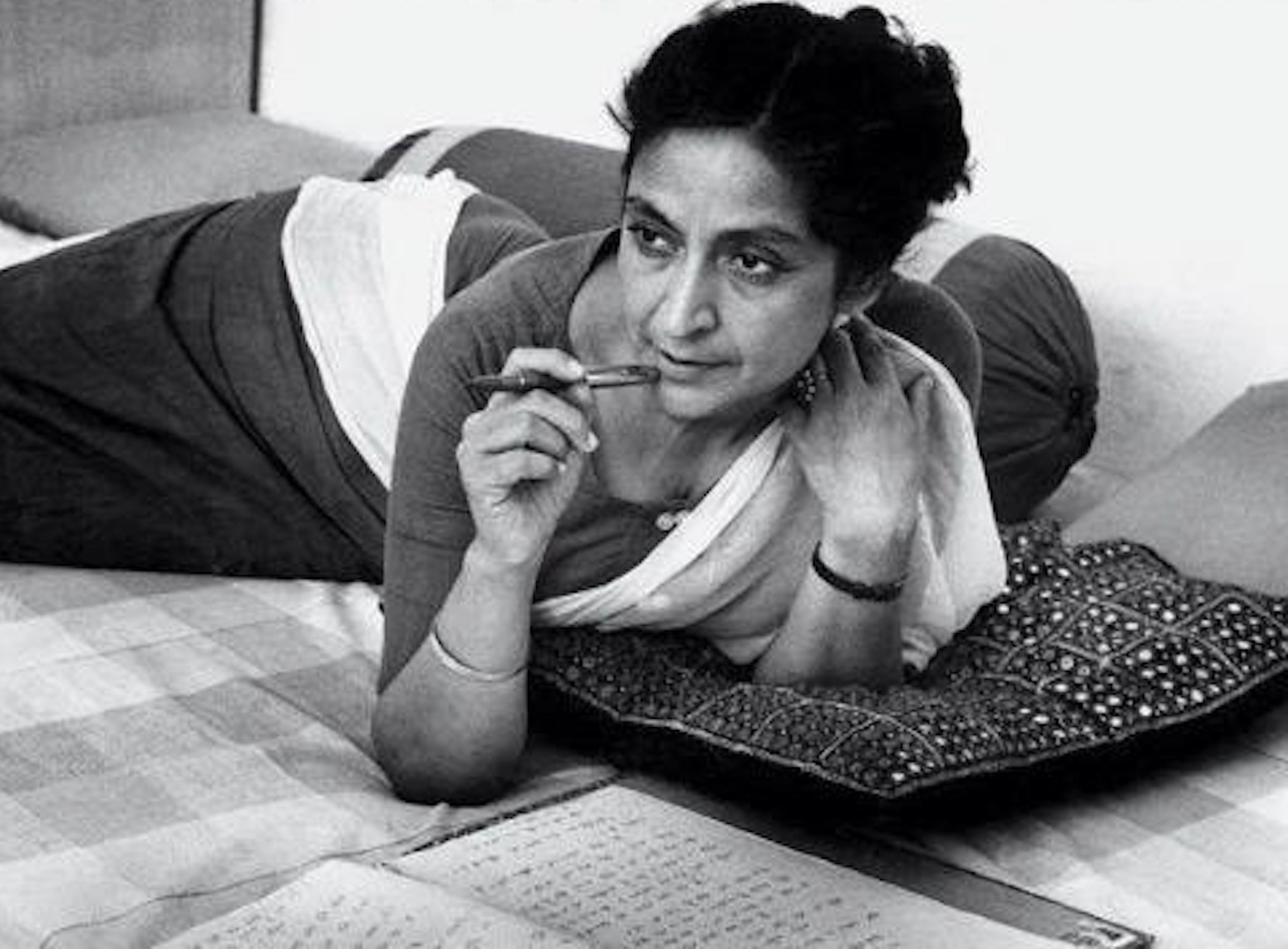
Things which saddens me when I ask about anyone's favourite poet, people often marks all the male poet's names or verse but no one can recall any female poetesses, who put their whole life in making poems. So, on this International Women's Day we are going to take you on a tour to know 5 Indian poetesses, who claimed their designation truly and remarkably.
SAROJINI NAIDU

Sarojini Naidu or Chattopadhyay, also known as a "Nightingale of India", was born in 1879 to a well-educated father and a mother who was a poet herself. She was writing poetry from the age of 12, and her first collection of poems, The Golden Threshold, was published in 1905. She won a scholarship to study in England, first in King’s College London, and then at Cambridge. She was a part of India’s freedom struggle and a leading figure in the Quit India Movement. She was a passionate feminist who travelled widely around India before independence, lecturing on social welfare and women’s empowerment. She played a leading role in the Civil Disobedience Movement and was arrested several times with other leading figures of Indian independence, including Mahatma Gandhi.
The Gift of India - Poem by Sarojini Naidu
"Is there ought you need that my hands withhold,
Rich gifts of raiment or grain or gold?
Lo ! I have flung to the East and the West
Pricelesstreasures
torn from my breast,
And yielded the sons of my stricken womb
To the drum-beats of the duty,the
sabers of doom….."
ZEB-UN-NISA

Princess Zeb-un-Nisa, also called the“Ornament of Womankind”, was born in 1638; she was a Mughal princess and the eldest child of Emperor Aurangzeb and Princess Dilras Banu Begum. She received the finest education available and was possessed of a keen intellect and a thirst for literary knowledge. She was well educated Muslim princess in both weapon and art.
She began narrating poetry at the age of 14, but because her father frowned on poetry and did not encourage it, she began writing poetry in secret, choosing as her pen name Makhfi, or The Hidden One.
She wrote a collection of poetry called Diwan which contains 5,000 verses and also wrote three other books of poetry, totalling 15,000 verses. She spent the last 20 years of her life imprisoned by her father at Salimgarh Fort, Delhi and with a time in prison her poetry became very bitter and lonely. She felt that she had literally become her pen name, Makhfi, The Hidden One. Zeb-un-Nisa died in 1701, and her tomb still stands in Agra.
Ghazal of Zeb-un-Nisa
You with the dark burly hair and the breathtaking eyes,
your inquiring glance that leaves me undone....
Eyes that pierce and then withdraw like a blood-stained sword,
eyes with dagger lashes!
Zealots, you are mistaken - this is heaven....
Never mind those making promises of the afterlife:
join us now, righteous friends, in this intoxication.....
Never mind the path to the Kaabah: sanctity resides in the heart.
Squander your life, suffer! God is right here....
Oh, excruciating face! Continual light!
This is where I am thrilled, here, right here.....
There is no book anywhere on the matter.
Only as soon as I see you do I understand.....
If you wish to offer your beauty to God, give Zebunissa
a taste. Awaiting the tiniest morsel, she is right here....
TORU DUTT

Referred to as the Keats of Indo-English literature, Toru Dutt was born in 1856. She was the first Indian woman to write poems in English, although she was multilingual and apparently able to master languages with ease. She died of tuberculosis at the tender age of 21, but she leaves behind an impressive collection of prose and poetry. Her grave is located in Maniktala Christian Cemetery, in Kolkata.
The Broken Bell - Poem by Toru Dutt
Tis bitter-sweet on winter nights to note,
Beside the palpitating fire reclined,
The chimes, across the fogs, upon the wind.
Now loud, now low, now near and now remote.
What recollections on that music float!
Blessed the bell that through the darkness blind
Sends honest greetings, consolations kind.
And solemn warnings from its lusty throat
Tis like a wakeful soldier, - mine, alas!
The soul-bell in me, can but give one cry,
Like that, a wounded soldier -o'er
whom pass
Riders and horses, and around whom lie
The dead and dying in a tangled mass -
Utters, unable or to move or die.
KAMALA SURAYYA

Kamala Surayya was born in 1934, her father, V.M. Nair, was a former managing editor of the Malayalam daily Mathrubhumi and her mother, Nalapat Balamani Amma, was a renowned poet.
She began writing poetry as a child and married a sympathetic husband at 15 who encouraged and supported her writing career. She wrote multiple short stories and poems and was a syndicated columnist who wrote about varied topics. Her first book of poetry was Summer in Calcutta. She wrote frankly about feminine love, lust, and sexual urges and desires. She was often compared to Marguerite Duras and Sylvia Plath.
Kamala Surayya was shortlisted for the Nobel Prize for Literature in 1984 and was awarded the Sahitya Akademi Award in 1985.
In Love - Poem by Kamala Das
O what does the burning mouth
Of sun, burning in today's,
Sky, remind me….oh, yes, his
Mouth, and….his limbs like pale and
Carnivorous plants reaching
out for me, and the sad lie
of my unending lust.
Where is room, excuse or even
Need for love, for, isn't each
Embrace a complete thing a finished
Jigsaw, when mouth on mouth, i lie,
Ignoring my poor moody mind
While pleasure, with deliberate gaeity
Trumpets harshly into the silence of
the room… At noon
I watch the sleek crows flying
Like poison on wings-and at
Night, from behind the Burdwan
Road, the corpse-bearers cry ‘Bol,
Hari Bol' , a strange lacing
For moonless nights, while I walk
The verandah sleepless, a
Million questions awake in
Me, and all about him, and
This skin-communicated
Thing that I dare not yet in
His presence call our love.
AMRITA PRITAM

Amrita Kaur was born in 1919 in Gujranwala, Punjab, which is present-day Pakistan, her father was a schoolteacher Kartar Singh Hitkari, who was also a poet and a scholar. She lost her mother at the age of 11, and it was this tragedy that propelled her into writing about her loneliness and sorrow. Her first anthology of poems was called Amrit Lehran (Immortal Waves) and was published in 1936 when she was 16 years old. That was the same year she married Pritam Singh, an editor, and took his name.
She was deeply influenced by India’s freedom struggle and was heavily impacted by the partition that split India into India and Pakistan. She moved from Lahore to Delhi in 1947 as a result of the partition, although her work is equally popular on both sides of the border. She was the first Punjabi woman poet, novelist and essayist, and wrote in both Punjabi and Hindi.
Amrita Pritam was the first woman to win the Sahitya Akademi Award (India’s Academy of Letters) in 1956, a long poem entitled “Sunehade” (Messages). She also received the Padma Shri in 1969, and the Padma Vibushan, India’s second highest civilian award, in 2004. She was also accorded the Sahitya Akademi’s highest literary honour, the Sahitya Akademi Fellowship given to the “immortals of literature” for lifetime achievement.
A Letter - Poem by Amrita Pritam
Me—a book in the attic.
Maybe some covenant or hymnal.
Or a chapter from the Kama Sutra,
or a spell for intimate afflictions.
But then it seems I am none of these.
(If I were, someone would have read me.)
Apparently at an assembly of revolutionaries
they passed a resolution,
and I am a longhand copy of it.
It has the police's stamp on it
and was never successfully enforced.
It is preserved only for the sake of procedure.
And now only some sparrows come,
straw in their beaks,
and sit on my body
and worry about the next generation.
(How wonderful to worry about the next generation!)
Sparrows have wings on them,
but resolutions have no wings
(or resolutions have no second generation).
Sometimes I think to catch the scent—
what lies in my future?
Worry makes my binding come off.
Whenever I try to smell,
just some fumes of bird shit.
O my earth, your future!
Me—your current state.
Also, see:
9 Facts to motivate you on this International Women’s Day
International Women’s Day: Origin and Ceremonies